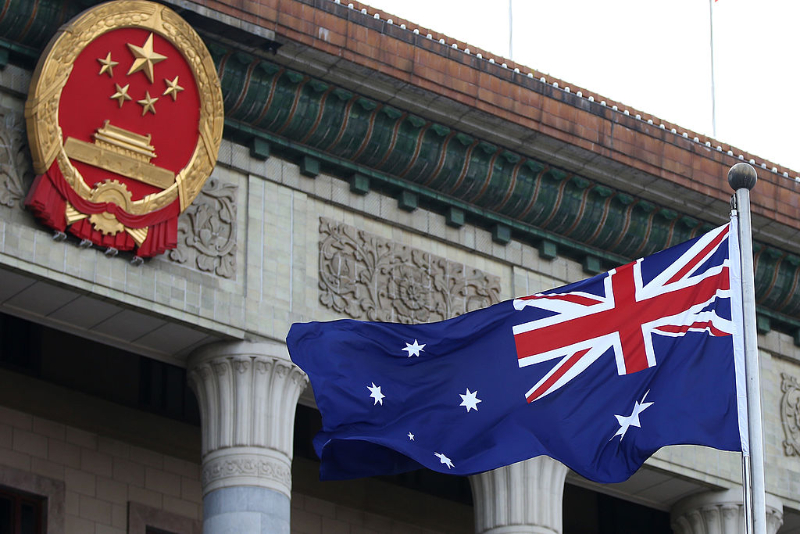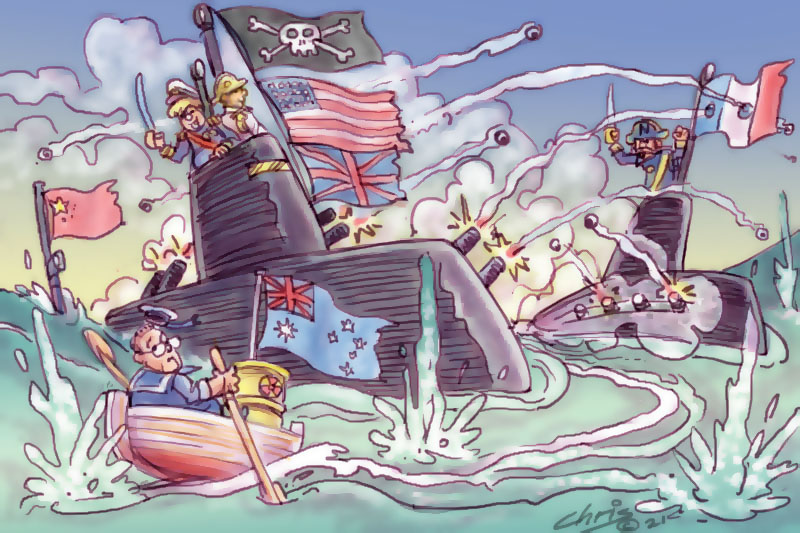Search Results: Chinese
There are more than 200 results, only the first 200 are displayed here.
-

AUSTRALIA
- John Warhurst
- 09 March 2022
9 Comments
Domestic policies are often regarded as more important than foreign affairs and defence policies in influencing Australian election campaigns. But national security campaigns by the government of the day, known as either khaki elections or reds under the beds, have such a long history in Australian federal elections that they challenge the conventional wisdom.
READ MORE 
-

AUSTRALIA
- Andrew Hamilton
- 02 March 2022
9 Comments
In the last few weeks the threat of a Khaki election has loomed large In Australia. The invasion of Ukraine and tensions in relations with China have focused attention on which party can best ensure national security. This question will surely be pressed during the election campaign.
READ MORE 
-

ARTS AND CULTURE
- Philip Harvey
- 02 February 2022
2 Comments
I was invited to read the poetry at Eureka Street by Morag Fraser, sometime in the mists. She shouted me coffee at the Chinese place across Victoria Street from the magazine’s Richmond offices. That was nearly twenty years ago. As we crunched on fortune cookies, she popped the question. I’ve been editing poetry at Eureka Street ever since and have only chosen to let go of the job this summer.
READ MORE 
-

RELIGION
- Michael Furtado
- 11 November 2021
63 Comments
Every Australian diocese and parish already has its particular subcultural identity that inflects its liturgy. Celebration, being the authentic hallmark of a liturgy that reflects identity, must keep pace with a theology that also incorporates the diverse cultural space that the young inhabit.
READ MORE 
-

ECONOMICS
- David James
- 12 October 2021
3 Comments
Over the last two years, money printing has created the illusion of strength in savings. But when reality resurfaces, and actual returns are required from actual economic and business activity, the global financial system will come under extreme stress.
READ MORE 
-

AUSTRALIA
- Andrew Hamilton
- 06 October 2021
35 Comments
Some weeks ago I wrote about the taking of human life and of the loss of its sacred connotations. I argued that the decisive consideration governing recent legislation in such issues as abortion and assisted dying has been the appeal to individual choice, supported by compassion for people who suffer from their denial. Whether we welcome this trend or regret it, as I do, we all have an interest in asking what effect it will have on society. In this article I would like to explore this question in a way that opens rather than closes conversation.
READ MORE 
-

AUSTRALIA
- Andrew Hamilton
- 23 September 2021
15 Comments
Unlike December 25, September 26 is a World Day that passes by in silence. It calls for the Elimination of all Nuclear Weapons. Nuclear power is too mysterious to understand, too horrific to dwell on, and too far away to take responsibility for. It and its destructive power are unthinkable. And yet it continues to press on us, most recently in the announcement that Australia will build nuclear-powered submarines.
READ MORE 
-

INTERNATIONAL
- Binoy Kampmark
- 20 September 2021
29 Comments
Defence is a costly business, and few branches of defence are more costly, and questionable, than a country’s submarine capability. Since 2009, Project SEA 1000, the name for Australia’s Future Submarine program, has fascinated strategists and defence planners. In 2016, this resulted in an agreement with the French submarine company DCNS (now called Naval Group) to build an un-designed attack class vessel. Other contenders in the competitive tender — Germany and Japan, for instance — had existing models.
READ MORE 
-

ECONOMICS
- David James
- 07 September 2021
4 Comments
There is a three-way battle looming over the future of money and the stakes could scarcely be higher. Conventional money, mainly debt created by banks — the ‘folding stuff’ is only a tiny proportion of the total — is in trouble. Total global debt is now so large relative to the world economy it cannot be serviced, which is why monetary authorities have resorted to dropping interest rates. When they almost hit zero, the next step was quantitative easing (QE): printing money by getting the central bank to buy back government and corporate bonds and putting them on its ‘balance sheet’.
READ MORE 
-

INTERNATIONAL
- Joseph Camilleri
- 15 July 2021
17 Comments
The souring of relations with China is driven not just by prime ministers, foreign and defence ministers, or even by Cabinet. It is the product of converging interests with immense reach and influence.
READ MORE 
-

INTERNATIONAL
- Andrew Hamilton
- 01 July 2021
28 Comments
We should resist the pressure to regard China as our enemy. The pressure to do so is powerful, given the cycle of retaliatory words on both sides that further poison relationships. The impetus to enmity, however, damages both sides. To treat people as enemies means that they become enemies, with the result that both sides will spurn the mutual exchanges that can help each.
READ MORE 
-

INTERNATIONAL
- Daniel Sleiman
- 04 February 2021
8 Comments
Despite talk against ‘vaccine nationalism’ the pharmaceutical companies are ultimately beholden to investors and shareholders. Their effectiveness percentages are pitches. They will sell to those who can afford to buy. And naturally that’s wealthy countries.
READ MORE 